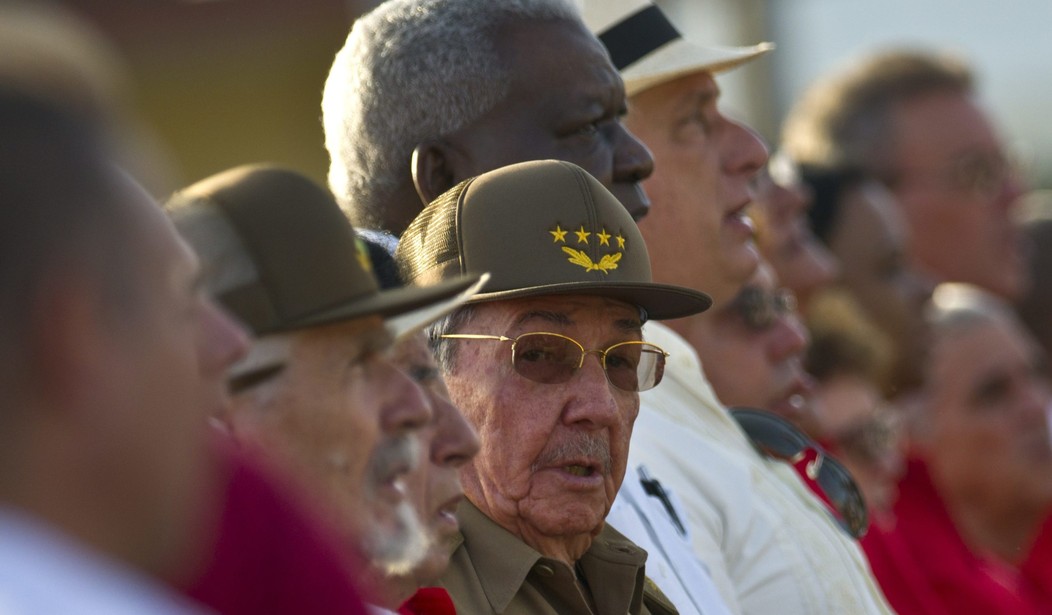WASHINGTON – President Trump should further unwind President Obama’s directives on Cuba and once again designate the communist nation as a state sponsor of terrorism, a panel of Cuban and diplomatic experts told Congress last week.
The panel included Cuban-born U.S. Ambassador to Venezuela under George H.W. Bush Otto Reich, Heritage Foundation analyst Ana Quintana and the Cuban Studies Institute’s Jaime Suchlicki.
Quintana argued that Cuba never met the standard to be removed from the State Department list in the first place. Reich agreed, saying that when Obama moved to normalize relations with Cuba in 2014 he ordered a “preordained” review of Cuba’s designation.
“That was not a serious (State Department) review,” Reich said during a hearing before the House Committee on Oversight and Government Reform Subcommittee on National Security, which was held at Miami Dade College.
The experts repeatedly pointed to the alleged acoustic attacks against some two dozen U.S. diplomats and their families in Havana in 2017, as well as the Castro regime’s ties to two of the four state sponsors of terrorism, Iran and North Korea.
Obama in December 2014 removed the designation, loosened restrictions on travel and business for Americans in Cuba and visited the communist island himself. In exchange for the policy shift, the U.S. gained the return of two American citizen detainees and the release of at least 53 Cuban prisoners.
The Trump administration in November reversed the normalization process by restricting travel and business dealings in Cuba, including limits on relationships with entities linked to the Cuban military.
Quintana said that Obama never certified that Cuba doesn’t have the capability to conduct terrorist actions in the future, and Reich said that the alleged acoustic attacks, which remain a mystery, should be characterized as terror attacks. The panel agreed that the Cuban government at least knew about the attacks, if it didn’t outright direct them.
“Where was the legal justification for Cuba’s removal (from the list)?” Quintana asked.
Sen. Marco Rubio (R-Fla.) sat in during the House hearing, where he argued that U.S.-Cuba policy should further American interests and values. He said that the Obama policies did neither.
“It is not in our national interest to have an anti-Israeli, anti-American, pro-Iranian and pro-Putin dictatorial regime 90 miles from our shores,” Rubio said. “The opening to Cuba did absolutely nothing to transition to a different type of government, much less a democratic one. On the contrary, it created the space for at least a symbolic transition that the Cuban government will try to appear to make look normal when it is in fact not.”
Rep. Ted Yoho (R-Fla.) said that Obama’s failed policies are similar to “giving more teeth to a shark.”
“He doesn’t get nicer. They get hungrier. They eat more,” Yoho said.
Rubio added that none of the rewards given to the Castro regime were conditioned with anything related to human rights or democracy. Conceding to Cuba meant that the Obama administration was required to look the other way on human rights issues to avoid imperiling the deal, Rubio said.
He added that he is supportive of this administration’s approach, which does two things: It puts independent Cubans in a privileged position, in which Americans can do business, and it prevents military-owned firms from putting a “stranglehold” on the Cuban economy. Without Castro in power, there would be no Nicolás Maduro in Venezuela and there wouldn’t be acoustic attacks in Havana, Rubio said.
Reich said that the unreciprocated concession to the Castro regime filled the coffers of the Cuban military and the Castro family. He also cited the February 2014 incident in which a North Korean ship carrying illicit Cuban weapons was seized in the Panama Canal. The cargo, which was hidden under packages of sugar, included Soviet-era weapons and aircraft.
Suchlicki argued that the Obama policies did nothing to move the needle in terms of Castro support for Venezuela, Iran, Russia and North Korea. He suggested that Raul Castro is an “enemy” of the U.S., and that Russian presence in Cuba will intensify in the coming years. He predicted that Russian President Vladimir Putin will use Cuba as a base for submarines, which will require an expensive U.S. response.









Join the conversation as a VIP Member